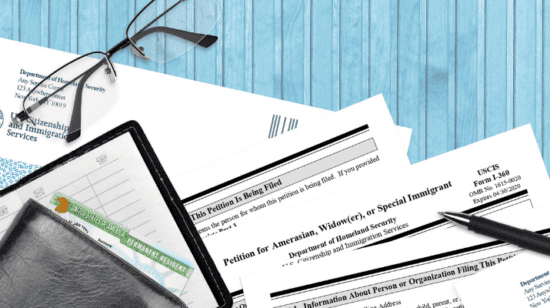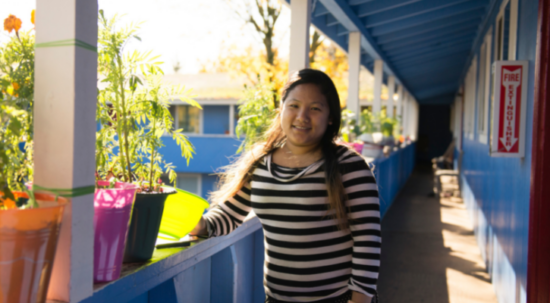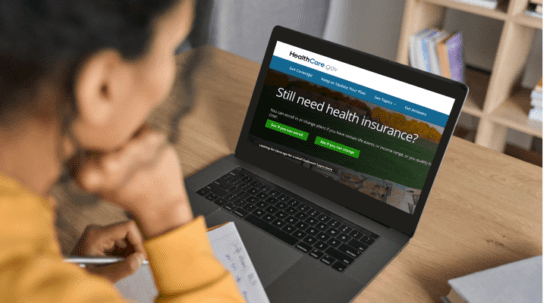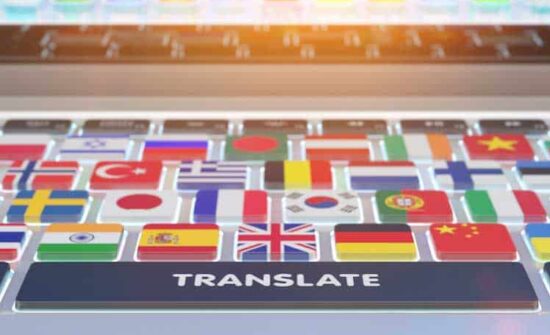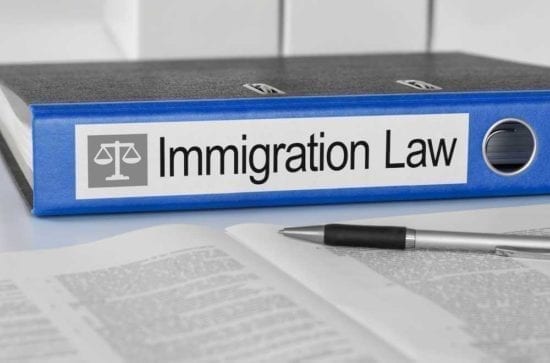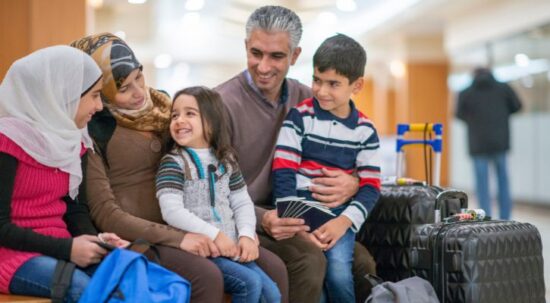Примітка: імміграційна політика США змінюється за адміністрації Трампа. Деяка інформація, наведена нижче, може бути застарілою. Дізнайтеся про поточні зміни тут.
Що таке державна допомога?
Уряд США пропонує державну допомогу на основні послуги, включаючи харчування, житло, охорону здоров'я та освіту. Ці федеральні програми надають соціальні служби. Вони допомагають:
- Людям з низьким рівнем доходу
- Людям, які не мають постійного місця проживання
- Людям з обмеженими можливостями
Більшість державної допомоги залежить від вашого доходу та розміру сім'ї. Вони призначені для тимчасової допомоги. Розмір підтримки, яку ви отримуєте, може зменшитися або припинитися, коли ви заробите більше грошей.
У кожному штаті діє своя програма, тому державна допомога може відрізнятися від штату до штату. Якщо ви переїжджаєте, вам, як правило, потрібно повторно подавати заяву на отримання допомоги в новому штаті.
| Біженці, особи, які отримали притулок, та інші іммігранти також можуть претендувати на додаткові послуги, пропоновані Управлінням у справах біженців (ORR). |
Хто може отримувати державну допомогу?
Громадяни США та певні кваліфіковані іммігранти мають право на державну допомогу. Серед них - кваліфіковані іммігранти:
- Законні власники посвідки на постійне проживання (власники грін-карти)
- Біженці та шукачі притулку
- Абітурієнти з Куби та Гаїті
- Власники спеціальних імміграційних віз
- Постраждалі особи від торгівлі людьми
- Особи з гуманітарними паролями
Прийнятність також залежить від вимог конкретного штату. У кожній державі свої правила. Деякі штати надають державну допомогу, таку як медичне страхування, всім жителям, незалежно від імміграційного статусу.
Іммігранти без документів та інші особи, не зазначені в переліку, як правило, не мають права на отримання більшості державної допомоги. Однак вони можуть отримати допомогу від місцевих соціальних служб та громадських програм.
| Місцева соціальна служба може відповісти на будь-які запитання, які у вас можуть виникнути. Benefits.gov перераховує пільги за штатами. |
Які існують види державної допомоги?
Програма надання тимчасової допомоги малозабезпеченим сім’ям (TANF)
TANF (також відома як соціальна допомога) надає грошові кошти сім’ям з низьким рівнем доходу. Програма допомагає оплачувати харчування, житло, догляд за дітьми та професійну підготовку. Ви отримуватимете допомогу TANF на дебетову картку, прямий депозит або паперові чеки, залежно від вашого штату.
Важливо знати, що розмір допомоги, яку ви отримуєте, може сильно відрізнятися від допомоги, яку отримує людина в іншому штаті. У кожному штаті встановлені власні суми, які залежать від розміру домогосподарства та рівня доходу.
Як подати заявку: Зверніться до місцевої програми TANF для отримання інформації про вимоги та порядок подання заявки.
Програма додаткового доходу з соціального забезпечення (SSI)
SSI надає щомісячні виплати дорослим 65 років і старше, які вийшли на пенсію і більше не працюють або заробляють обмежену суму щомісяця. Сума щомісячного платежу може змінюватися залежно від вашого доходу, ресурсів та життєвої ситуації.
Знайдіть інформацію про SSI кількома мовами.
Як подати заявку: Заповніть онлайн-заявку. Ви також можете зателефонувати на гарячу лінію SSI за номером 1-800-772-1213. Вам буде призначено час для заповнення заявки.
Соціальне страхування з тимчасової втрати працездатності (SSDI)
SSDI забезпечує дохід для людей, які мають інвалідність, що зупиняє або обмежує їхню працездатність на рік або більше. Ваш щомісячний платіж залежить від стажу роботи. Ви також отримаєте медичне страхування через програму медичного страхування Medicare.
Medicaid
Програма охорони здоров’я Medicaid надає безкоштовне або недороге медичне страхування літнім людям, людям з обмеженими можливостями, дітям, вагітним жінкам та сім’ям з низьким рівнем доходу. Більшість іммігрантів повинні почекати 5 років після отримання імміграційного статусу, перш ніж подавати заяву на програму охорони здоров’я Medicaid. Біженці та шукачі притулку не повинні чекати.
програма охорони здоров’я Medicaid оплачує невідкладні послуги, в тому числі перебування в лікарні. Невідкладна програма охорони здоров’я Medicaid доступна для іммігрантів, які не вважаються "іноземними громадянами", але відповідають усім правилам щодо доходу та проживання в штаті. Іммігранти без документів можуть подати заявку на програму охорони здоров’я Medicaid.
Як подати заявку: Заповніть заяву на платформі медичного страхування. Ви також можете звернутися до агентства програми охорони здоров’я Medicaid вашого штату, щоб отримати інформацію про право на участь у програмі та про те, як подати заявку.
Дізнайтеся більше про пільги для людей з обмеженими можливостями.
Програма дитячого медичного страхування (CHIP)
Програма дитячого медичного страхування (CHIP) забезпечує безкоштовне або недороге медичне страхування для дітей та вагітних жінок. Це для сімей, які заробляють занадто багато грошей, щоб претендувати на програму охорони здоров’я Medicaid. У деяких штатах ви повинні почекати 5 років після отримання імміграційного статусу, перш ніж зареєструватися в CHIP.
Як подати заявку: Заповніть заяву на платформі медичного страхування. Дізнайтеся більше про програму CHIP у вашому штаті.
Medicare
Medicare надає безкоштовне або недороге медичне страхування для дорослих 65 років і старше, а також для людей з обмеженими можливостями та серйозними захворюваннями.
Як подати заявку: Заповніть online-заявку на програму медичного страхування Medicare. Ви можете зареєструватися в Medicare, коли ви отримуєте соціальні виплати або виходите на пенсію. Зателефонуйте на лінію Medicare за номером 1-800-633-4227, щоб отримати допомогу вашою мовою.
Програма додаткової продовольчої підтримки (SNAP)
SNAP (талони на харчування) допомагають сім’ям з низьким рівнем доходу купувати їжу за допомогою картки. Ви отримуватимете пільги SNAP на картку електронного переказу пільг (EBT). Він працює як дебетова картка.
Щомісяця ви отримуєте певну суму грошей на свою картку. Ви можете використовувати картку для купівлі продуктів в авторизованих магазинах. Щоб отримати право на SNAP, ви повинні відповідати певним вимогам щодо доходу та роботи.
Якщо ви не є громадянином США, ви також повинні відповідати принаймні 1 з наведених нижче критеріїв:
- Прожити в США більше 5 років
- Отримувати виплати, пов'язані з інвалідністю
- Бути молодше 18 років
Як подати заявку: Зверніться до офісу SNAP у вашому штаті, щоб отримати інформацію про те, як подати заявку.
| Якщо ви не маєте права на SNAP або вона не покриває ваших потреб, продовольчі комори надають безкоштовні продукти і, як правило, відкриті для всіх, хто цього потребує. |
Спеціальна програма додаткового харчування для жінок, немовлят та дітей (WIC)
WIC допомагає вагітним жінкам, жінкам, що годують груддю, та дітям до 5 років отримувати продукти харчування, консультації з питань харчування та перенаправлення до соціальних служб. Ви повинні відповідати певним вимогам щодо доходу та стану здоров'я, щоб отримати право на участь у програмі.
Як подати заявку: Зверніться до вашого штату або місцевої агенції WIC для отримання детальної інформації про те, як подати заявку.
Продовольча допомога для літніх людей
Деякі штати пропонують продовольчу допомогу дорослим 60 років і старше з низькими доходами через Програму харчування на фермерських ринках для літніх людей та Програму додаткового продовольства на товарних ринках. Ці програми допомоги включають щомісячні пакети здорової їжі та купони на продукти на фермерських ринках. Літні люди також можуть мати право на продовольчу допомогу від SNAP.
Як подати заявку: Зверніться до програми продовольства та харчування у вашому штаті, щоб отримати інформацію про те, як подати заявку.
Безкоштовне або пільгове шкільне харчування
Школи пропонують безкоштовне або недороге харчування протягом усього навчального року та під час літніх канікул. Ваші діти можуть претендувати на допомогу на основі доходу вашої родини. Якщо ви отримуєте допомогу SNAP або TANF, ваші діти автоматично отримують право на безкоштовне шкільне харчування.
Як подати заявку: Зазвичай школи надсилають заявки додому на початку навчального року. Ви також можете звернутися до шкільного офісу з проханням подати заяву в будь-який час протягом навчального року.
Державне житло та ваучери
Уряд США пропонує державне або субсидоване житло для сімей з низьким рівнем доходу, літніх людей та людей з обмеженими можливостями. Ці квартири зазвичай мають знижену орендну плату. Ви також можете подати заявку на отримання ваучерів для часткової або повної оплати орендної плати.
Як подати заявку: Зверніться до державного житлового агентства у вашому штаті для отримання додаткової інформації.
Дізнайтеся більше про житло для іммігрантів.
Допомога в оплаті комунальних платежів
Програма LIHEAP допомагає людям з низьким рівнем доходу оплачувати рахунки за спожиті енергоносії, такі як газ та електроенергія.
Як подати заявку: Зверніться до офісу LIHEAP у вашому штаті для отримання додаткової інформації.
Програма WAP допомагає оплачувати поліпшення житла, які заощаджують гроші на рахунках за енергоносії.
Як подати заявку: Зверніться до офісу WAP у вашому штаті для отримання додаткової інформації.
Lifeline допомагає людям з низьким рівнем доходу оплачувати телефонні та інтернет-послуги.
Як подати заявку: Зверніться до свого телефонного або інтернет-провайдера та підпишіться на послугу Lifeline.
Що таке Державне утримання?
Особа на державному утриманні - це особа, яка, на думку імміграційної служби, буде залежати від уряду в отриманні грошей і підтримки. Якщо ви вважаєтесь особою на державному утриманні, ви не зможете подати заяву на отримання імміграційного статусу.
Лише 2 державні пільги зараховуються до особи на державному утриманні:
- Державна грошова допомога, включаючи SSI та TANF
- Довгостроковий догляд (через програму охорони здоров’я Medicaid або іншу програму)
Визнання людини особою собана державному утриманні не поширюється на групи, які мають право на отримання послуг ORR, включаючи біженців та шукачів притулку. Дізнайтеся більше про осіб на державному утриманні..
Які пільги та послуги надає ОРР?
Короткострокові переваги
Пільги та послуги ORR допомагають біженцям, особам, які шукають притулку, та іншим новим іммігрантам оплачувати основні потреби під час облаштування в Сполучених Штатах. Ці послуги надають уряди штатів, місцеві агентства з розселення та громадські організації. Знайдіть інформацію про ORR кількома мовами.
Для цих груп доступні пільги ORR :
- Біженці та шукачі притулку
- Афганці та українці зі статусом пароля
- Афганські та іракські власники SIV
- Абітурієнти з Куби та Гаїті
- Постраждалі особи від торгівлі людьми
- Особи, які пережили катування
- Американці
Короткострокові переваги
Більшість пільг та послуг ORR доступні протягом 12 місяців після вашого прибуття до США.
Як подати заяву: Зареєструйтеся в агентстві з питань розселення біженців, як тільки отримаєте статус. Якщо ви біженець, вас з'єднають безпосередньо з організацією, що займається розселенням. Вони допоможуть вам вступити на ці програми. Якщо у вас виникнуть запитання, зверніться до свого соціального працівника.
Короткострокові вигоди включають
Грошова допомога біженцям (RCA)
Якщо ви не маєте права на SSI або TANF, ви можете отримати грошову допомогу до 12 місяців. Ви можете використовувати RCA для оплати їжі, житла та транспорту.
У рамках цієї програми ви також можете отримати послуги з планування самозабезпечення та працевлаштування.
Програма співфінансування (МГ)
Ви можете вступити на програму MG замість RCA. MG надає грошову допомогу, планування сімейного бюджету, кейс-менеджмент та послуги з працевлаштування терміном до 8 місяців (240 днів).
Програма також допомагає з житлом, транспортом, охороною здоров'я та вивченням англійської мови.
Медична допомога біженцям (МДБ)
Якщо ви не маєте права на програму охорони здоров’я Medicaid, ви можете отримати до 12 місяців RMA. RMA надає таке ж безкоштовне або недороге медичне страхування, як і програма охорони здоров’я Medicaid. Ви можете подати заявку на медичне страхування через ринок медичного страхування після закінчення RMA.
Після прибуття до США ви можете пройти безкоштовне медичне обстеження в місцевому відділі охорони здоров'я. Воно включатиме всі необхідні вакцини. Якщо вам потрібна подальша допомога, лікар направить вас до лікаря первинної ланки або спеціаліста.
Довгострокові послуги
ORR пропонує додаткові програми, які можуть допомогти вам після першого року перебування.Ці програми спрямовані на те, щоб допомогти вам бути більш захищеними у вашому житті в США. Ці послуги надаються на строк до 5 років.
Довгострокові послуги включають в себе:
Служби підтримки біженців
Ви можете отримувати послуги підтримки протягом 5 років після прибуття до США. Сюди входить допомога у вивченні англійської мови, пошуку роботи та навчанні. Ви також можете отримати допомогу з доглядом за дітьми, транспортом, послугами перекладачів та кейс-менеджменту. Ви також можете отримати медичну освіту та підтримку психічного здоров'я в рамках цієї програми.
Спеціалізовані програми
Деякі агентства з розселення та громадські організації пропонують спеціальні програми, такі як фінансові заощадження, наставництво для молоді, послуги для літніх людей та технічна допомога для започаткування малого бізнесу.
Для певних груп існують додаткові ресурси. Дізнайтеся більше про пільги для українських умовно-достроково звільнених та афганських прибулих.
Інформація на цій сторінці походить з USA.gov, Office of Refugee Resettlement, та інших перевірених джерел. Ми прагнемо запропонувати легку для розуміння інформацію, яка регулярно оновлюється. Ця інформація не є юридичною консультацією.

